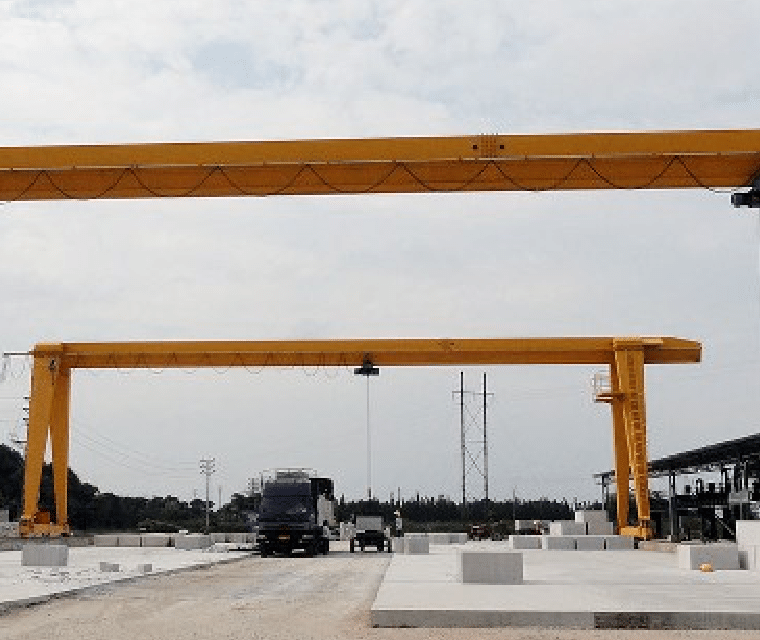Specifics It's Essential To Be Familiar With Electric Chain Hoists
In almost any factory setting, Electrical Chain Hoists are a must-have. Perfect for providing vertical lifts, electric chain hoists are quite obvious as well as simple to function. This will make them a beautiful option for business owners.

However, what's not so easy is the task of selecting the best hoist to your requirements. The marketplace is currently flooded which has a many products, most of which are subpar offerings. With all of manufacturers claiming the very best spot, it can become tough to select the correct one. This is why, to be sure that you never get it wrong, we've gone ahead and compiled this entire help guide choosing electric chain hoists for your use. When you go through the guide below, you should have little difficulty understanding which product you'll want to purchase. But let's start in the beginning and clear the air on the an Electric Chain Hoist is. What is a power Chain Hoist? To put it differently, an electric chain hoist is often a device that's used for vertically lifting and lowering any materials. The hoist is made up of an electric motor using a brake, Gearbox, Load Chain wheel along with a controller, which can be employed to control the motions in the system. The lifting element used will be the Alloy Steel Chain. These types of hoists are ideal in factories and machine shops, which require fast lifting and loading of things. Considerations when choosing Electric Chain Hoists Deciding on the best chain hoist is among the essential prerequisites for the safe and efficient workshop environment. The following are some of the main reasons that must be kept in mind when selecting the proper product. The load of the load: This is the first and most important factor you will want to consider when selecting electric chain hoists. The burden that you are lifting will determine the hoist you'll want to buy. In most cases of thumb, for under ten a lot of lifting capacity, a chain hoist is preferred. However, for lifting greater weights, an electric wire hoist is suitable. However doesn't hold with high lifting height. So, based on your industry needs and requirements, the choice of hoists will vary. Application Requirement: When you have determined the load type, you should figure out the application form which you will be putting the hoist. Consider this: Are you going to use it for product assembly? If you do, then extreme precision can be a prerequisite. Also important is always to know whether you're using any devices beneath the hook. Or precisely what are your duty cycles? Lifting Speed: Another the answer to consider is the lifting speed, which has to be carefully calibrated to the proper loading and unloading of the materials being lifted. The task Environment: Perhaps more vital than lift speed will be the environment where your hoist will probably be used. Factory environments could be abrasive for machinery, and it's really necessary to comprehend the impact the workplace may have on your own equipment. For example, when the hoist is utilized in extremely high-temperature environments, this may bring about gearbox leakage and related hoist malfunctions. Similarly, shallow temperatures can cause cracks to produce or internal components to freeze. Setting where there are extreme temperature swings can be detrimental to the operation of one's hoist. Frequent temperature changes may result in electrical short circuits and associated equipment malfunction. The work Cycle: What this means is time that your hoist will likely be used. The amount of hours that this hoist will operate at a time make a difference the longevity of your machine. The size of the obligation cycle is important as electrical hoists must dissipate heat through the motors. This means they must be given sufficient downtime to chill and recover. Otherwise, you could possibly you should be inviting equipment malfunctions. The Height From the Lift: The height this agreement you'll want to lift the stress also plays an essential part from the selection of the hoist. Usually, electric chain hoists have a container in which the excess chain is spooled. Naturally, the greater the height, the more the chain, and this means a bigger chain container. Otherwise designed properly, a too-large container may possibly act as an obstruction to the load being lifted. A power Chain hoist is often a preferred selection for higher lifting height, e.g. windmill hoist for turbine maintenance. The energy Source: The sort of hoist you need will also determine the power source you'll want to use. For low-duty cycle applications, a single-phase hoist is sufficient. If, however, you'll need extremely high-duty cycles, it's best to buy a three-phase hoist. This may just be sure you have adequate power for your machine's operation. Warranty: As far as machines go, an electrical hoist is probably the ones that undergo the usual damage. Hence, to stop repair costs, you have to have a product that has attractive warranty features. Be sure that the hoist warranty covers all essential parts and labour. Usually, labour will cost you more than parts, so it is best if the warranty incorporates both included. Safety Features: After the afternoon, an electric powered hoist is often a machine. As well as in any setting where electrical equipment is used, accidents may appear. That is why, when choosing the hoist, ensure it's got all safety features, for example load limiters. Also essential are self-adjusting brakes and thermal overload protection. For additional information about Electric Wire Rope Hoist visit this site